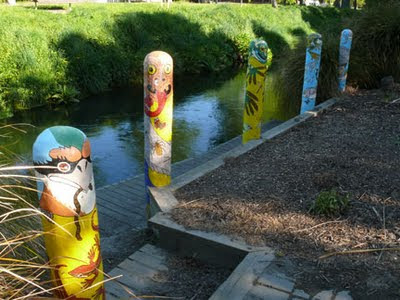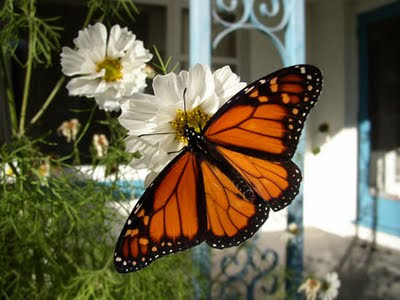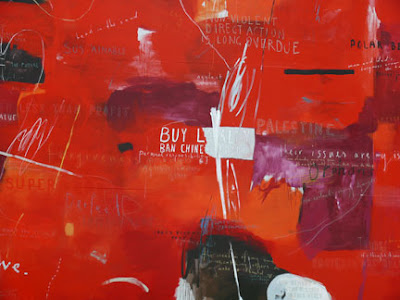
It wouldn't take a very perceptive reader of my blog to notice that there haven't been any new poems for quite a while. Since before we went on holiday in September, my poetry writing has taken a back seat. I've been reading poems, and reading books about poetry, and I even made a list of poems that I want to write, finish, or revise - a list which reached twenty, I think - but I haven't done any actual poetry writing.
Instead, looking at a number of things I've been doing, a common theme seems to be colour. I've taken photographs, browsed in fabric shops, bought flower seedlings for my garden, potted up hanging baskets (yellow pansies and blue cascading lobelia), cut little bits of fabric and sewn them together again. A quilt is gradually taking shape.
I'm almost back where I started with quiltmaking. In the beginning, it was a way of using leftovers from my dressmaking to make covers for beds. Not cheaper than a store-bought blanket, but more colourful and more personal. Gradually, I got caught up in the whole quilt group and quilt show scene, and I started worrying about whether my quilts were "good enough", and trying to make artistic wall-hangings. Now I've decided to retreat from that, and just enjoy the colour and pattern again (though I have bought enough "proper" quilt fabric over the years not to use dressmaking scraps - and I no longer make clothes very much, since sadly, it is expensive compared to buying cheap imported clothes made in China).
With photography, too, it seems much easier and more stress-free to post the results of my explorations on my blog than to post my poems, since I'm under no illusion that the results qualify me as a "photographer". I am just exploring what interests me, and sharing the results. As for gardening, anyone looking at my garden can see that I am very much a beginner.
All this I hope is "filling the well" and I will get back to poetry again sometime soon. Christmas time is summer vacation time here, so a few weeks off work may be the opportunity I am waiting for - or not.
The above photograph is a glimpse of the Lava Bar and adjoining Volcanic Cafe in Lyttelton, the port town for the city of Christchurch. It also qualifies as a building photo for Carmi's Thematic Photographic.


















